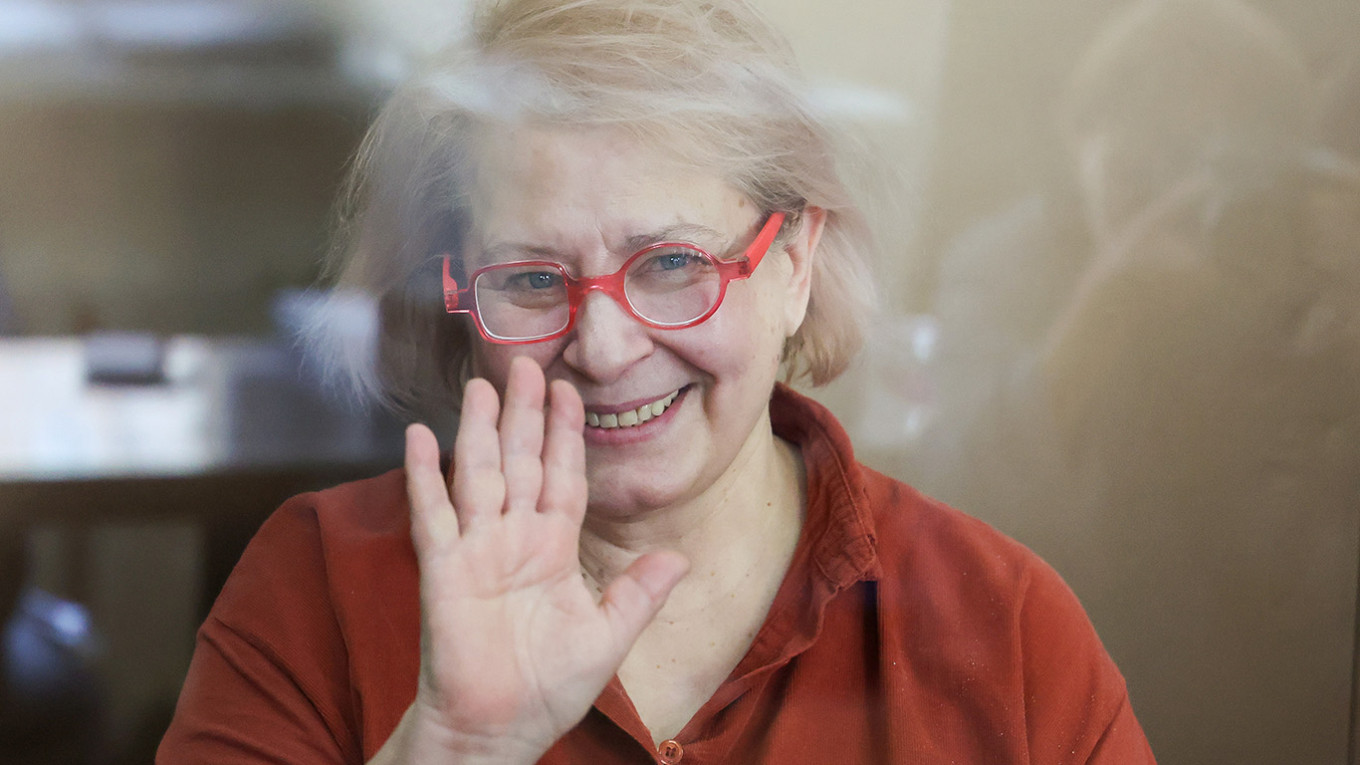Russian film critic Yekaterina Barabash said Monday that she fled to France with help from the media watchdog Reporters Without Borders (RSF), which smuggled her out of the country.
“It was very difficult,” Ekaterina Barabash, a 64-year-old Ukrainian-born reporter, told a news conference at RSF’s Paris headquarters. She faces up to 10 years in prison in Russia for spreading “false information” about the Russian army
Barabash said the journey to escape Russia lasted about two and a half weeks. “I arrived three days ago,” she said in English, declining to share full details for security reasons. “I am going to ask for political asylum.”
Barabash, who has written for several Russian outlets, including the Russian service of Radio France Internationale, was arrested in February on suspicion of spreading “false information” about the military through social media posts.
Russian authorities were alerted to her disappearance in April when she took off her electronic monitoring bracelet. “It’s somewhere in the Russian forest,” she said with a smile.
She said she hid for two weeks before fleeing and crossed the border on April 26 — her birthday. “I knew that everything would be OK.”
Barabash, who was born in Kharkiv when it was part of the Soviet Union, has been an outspoken critic of Moscow’s war. In March 2022, she wrote on Facebook that Russia had “bombed the country” and “razed whole cities to the ground.” Just days before her arrest, she posted: “Hatred, hatred, hatred for those who started all this.”
“So many lives have been destroyed, so many families torn apart,” she wrote. “The hatred has stopped burning, stopped suffocating me — it has hardened … I will die with it.”
Russia criminalized criticism of its military operations abroad shortly after launching its full-scale invasion of Ukraine in February 2022. Authorities have since opened thousands of cases under the law, which rights groups say is being used to silence dissent.
RSF also helped smuggle out Marina Ovsyannikova, the former state TV journalist who protested the war on-air in 2022.
The organization’s director Thibault Bruttin said it has become more difficult to help journalists leave Russia since Ovsyannikov escaped.
“We are very relieved,” he said. “It’s very dangerous.”
A Message from The Moscow Times:
Dear readers,
We are facing unprecedented challenges. Russia's Prosecutor General's Office has designated The Moscow Times as an "undesirable" organization, criminalizing our work and putting our staff at risk of prosecution. This follows our earlier unjust labeling as a "foreign agent."
These actions are direct attempts to silence independent journalism in Russia. The authorities claim our work "discredits the decisions of the Russian leadership." We see things differently: we strive to provide accurate, unbiased reporting on Russia.
We, the journalists of The Moscow Times, refuse to be silenced. But to continue our work, we need your help.
Your support, no matter how small, makes a world of difference. If you can, please support us monthly starting from just $2. It's quick to set up, and every contribution makes a significant impact.
By supporting The Moscow Times, you're defending open, independent journalism in the face of repression. Thank you for standing with us.
Remind me later.






